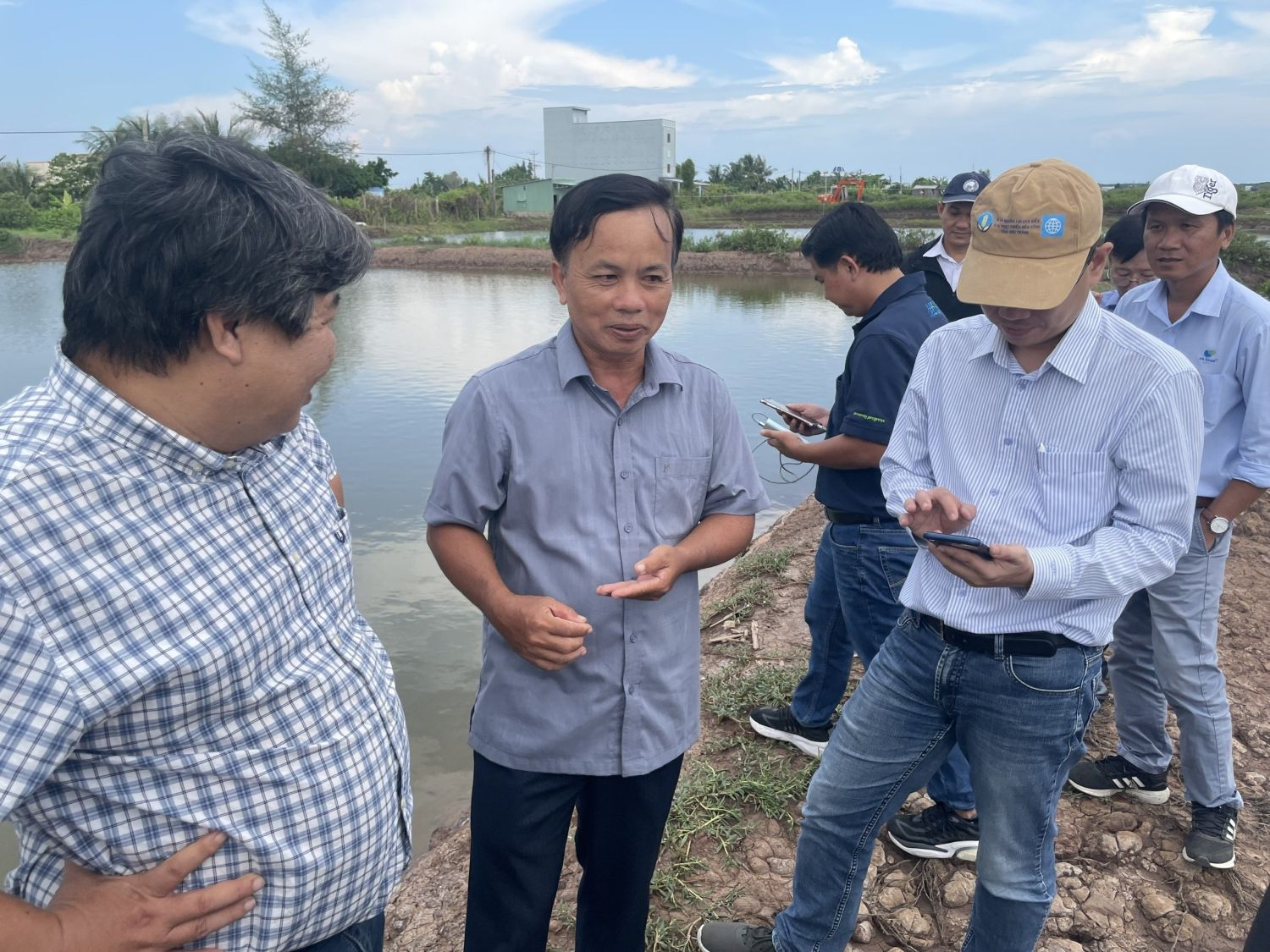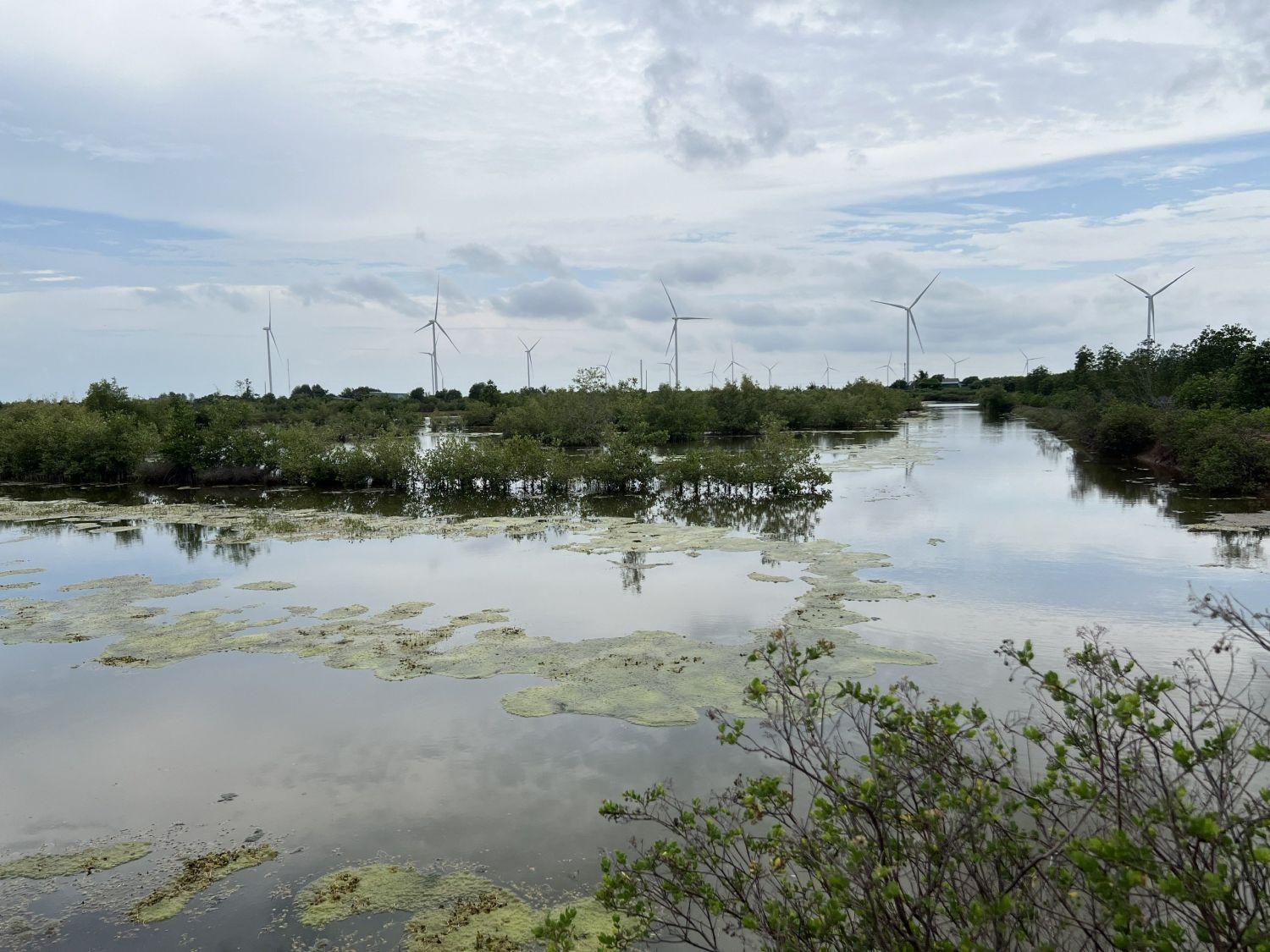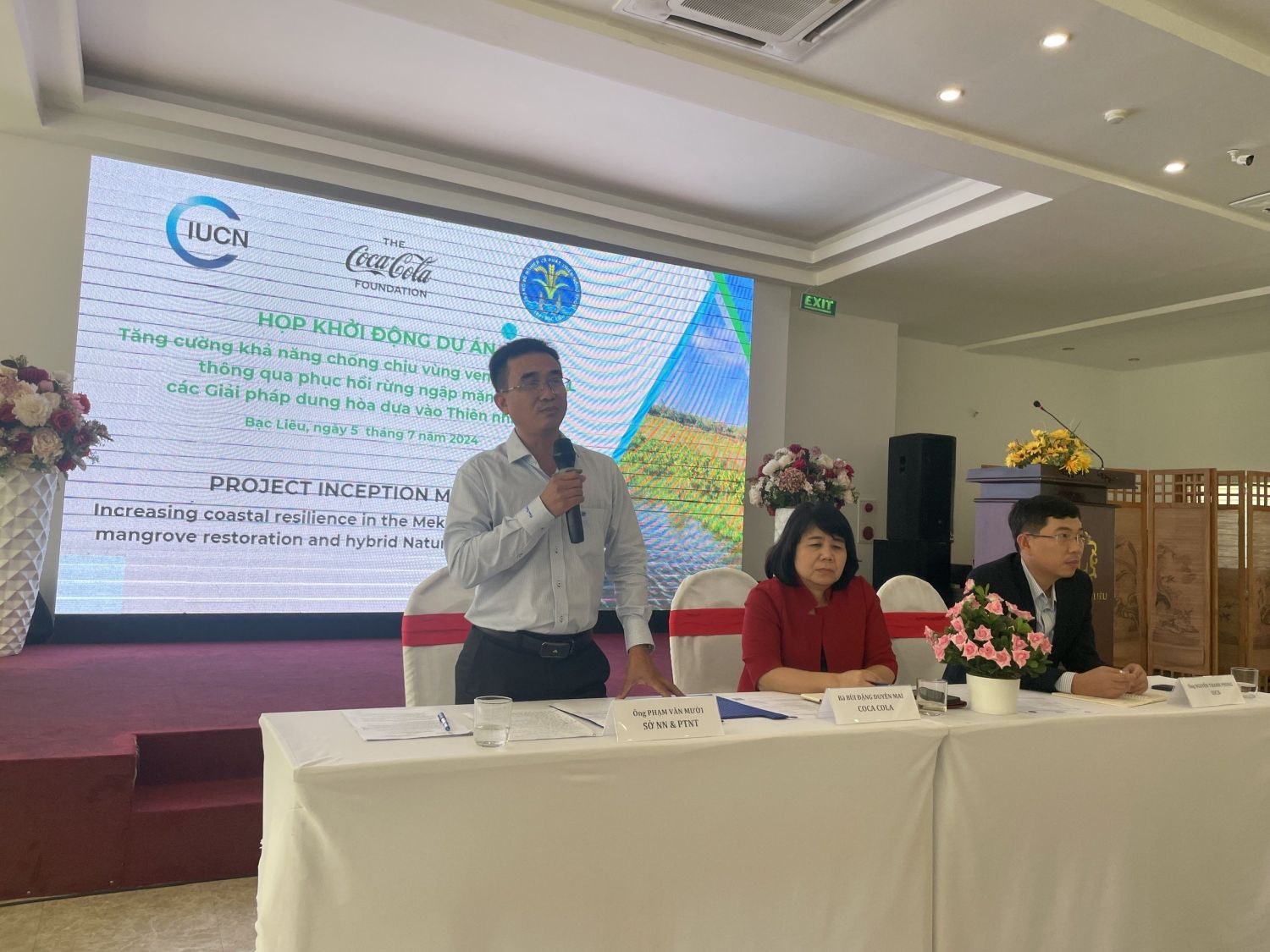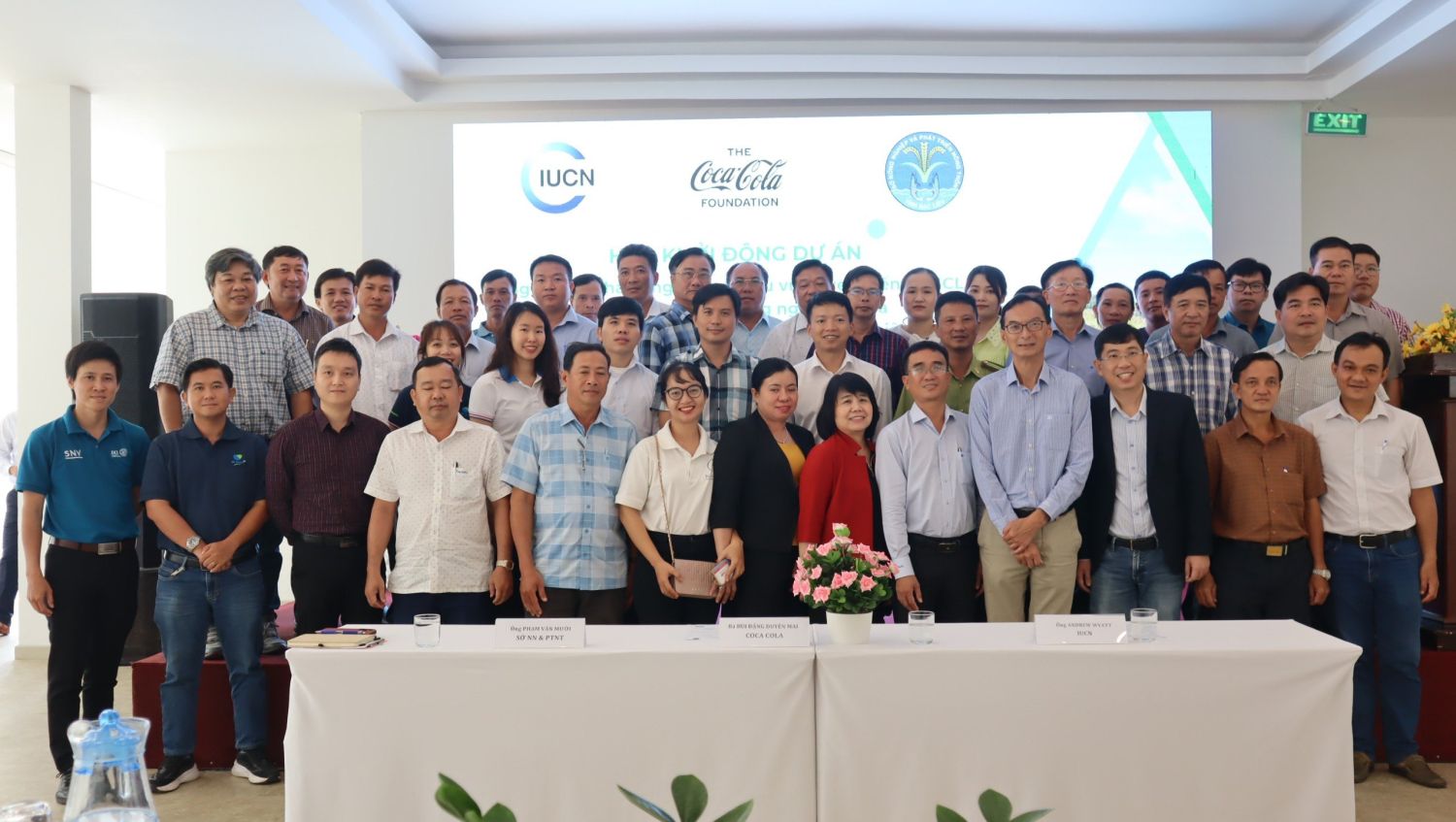Kick-off meeting on mangrove restoration and hybrid NbS in the Mekong Delta
On 5 July 2024, IUCN organised a meeting in Bac Lieu Province to launch the project "Increasing coastal resilience in the Mekong Delta through mangrove restoration and hybrid NbS" with funding from The Coca-Cola Foundation (TCCF). The project will apply a hybrid NbS that reconciles coastal protection and economic growth.
This 3-year project will test models to address the coastal squeeze in Bac Lieu and Soc Trang, provinces with the flattest and most vulnerable coastlines in the Mekong Delta. These coastlines are characterised by a 1-3-km deep band of privately owned intensive shrimp farms, less than 0.5 m above sea level, located right behind the dirt sea dike.
This production system undermines coastal resilience because the mangroves, trapped between the dike on one side and rising sea level on the other, are contracting by up to 20 m/year. This has accelerated erosion of the sea dikes and increased risk from high tides and storm surges. The shrimp ponds pump groundwater to dilute water during the heat waves and prolonged droughts that are becoming increasingly common. As a result, the coastline is subsiding five times faster than global sea level rise.
The conventional response to the coastal squeeze is to build concrete breakwaters to rebuild the eroded mudflats so that mangroves can be replanted outside the dikes. But this is a high-cost approach that will likely fail where sediment is depleted by upstream dams and sluice gates that hold back the sediment. By disconnecting coastal land from the sea, it blocks water circulation and aggravates water pollution, which in turn drives groundwater pumping and subsidence.
In contrast, the project will plant mangroves behind the sea dike (i.e., on the landward side) and transform land use into a mix of mangrove-shrimp and Recirculatory Aquaculture System or RAS. This hybrid NbS has the potential to simultaneously address the loss of mangrove ecosystem services, land subsidence, and water pollution, and slow down or reverse the coastal squeeze. The project will provide training, technical assistance, and equipment to 45 households, which currently manage 18 hectares of mangrove inside the sea dike.
With strong support from local authorities in Bac Lieu and Soc Trang, 60 participants attended the project launch including representatives of DARD, Hoa Binh and Dong Hai Districts, coastal ecosystem experts, businesses, local media, CSOs, and 16 households.
 Photo: Participants visited local farms during the field trip in Vinh Hau coastal commune, Bac Lieu Province © IUCN Viet Nam
Photo: Participants visited local farms during the field trip in Vinh Hau coastal commune, Bac Lieu Province © IUCN Viet Nam
With representatives of TCCF and IUCN, Pham Van Muoi, Deputy Director of the Bac Lieu DARD co-chaired discussions on sustainable mangrove management, coastal livelihoods improvement, and improving water circulation in polyculture aquaculture, and received feedback from farmers.
After the meeting. participants visited two mangrove-shrimp farms that are the project’s potential test sites in Vinh Hau Commune, Hoa Binh District, about 20 km from Bac Lieu City.
The discussion and farmer feedback will improve the project design of this ambitious NbS project.



